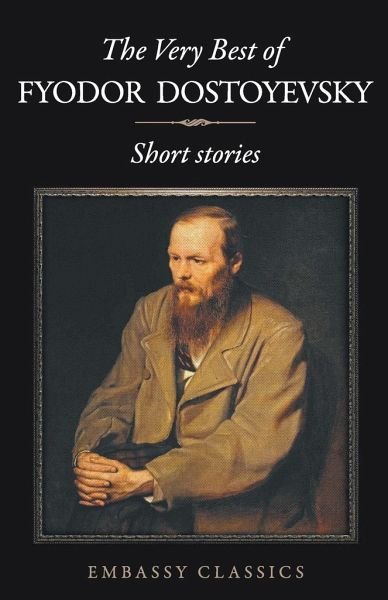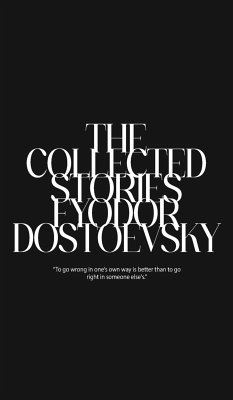
The Very Best Of Fyodor Dostoyevsky
Versandkostenfrei!
Versandfertig in 1-2 Wochen
20,99 €
inkl. MwSt.

PAYBACK Punkte
10 °P sammeln!
Dostoyevsky is usually regarded as one of the finest novelists who ever lived.He was also known as a journalist who left a strong impression on people?s mind through his writings. His works are often called prophetic because he so accurately predicted how Russia?s revolutionaries would behave if they came to power. His profundity in the analysis of pathological states of mind that lead to insanity, murder, and suicide and in the exploration of the emotions of humiliation, self-destruction, tyrannical domination, and murderous rage, earned him the fame of being the greatest psychologist in the ...
Dostoyevsky is usually regarded as one of the finest novelists who ever lived.He was also known as a journalist who left a strong impression on people?s mind through his writings. His works are often called prophetic because he so accurately predicted how Russia?s revolutionaries would behave if they came to power. His profundity in the analysis of pathological states of mind that lead to insanity, murder, and suicide and in the exploration of the emotions of humiliation, self-destruction, tyrannical domination, and murderous rage, earned him the fame of being the greatest psychologist in the history of literature. Literary modernism, and various schools of psychology, theology, and literary criticism have been largely influenced by his ideas. Dostoyevsky is best known for his novella Notes from the Underground and for four long novels, Crime and Punishment, The Idiot, The Possessed (also and more accurately known as The Demons and The Devils), and The Brothers Karamazov. This short story collection includes some of his most famous works including The Dream of a Ridiculous Man, The Crocodile, The Heavenly Christmas Tree and Bobok. Embassy Books proudly presents this book as part of the Embassy Classics Series, which comprises of some of the finest literary works of great authors.












